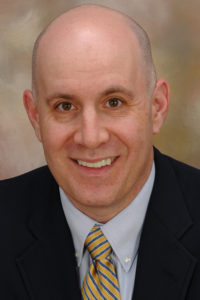
Patients can now receive care from the comfort of their home thanks to technological advances in medicine, like telemedicine and cloud-based technology.
Neil S. Freedman, MD, FCCP, will chair the interdisciplinary session Using Technology to Improve Outcomes for Patients With Sleep-Disordered Breathing, on Monday at 10:30 am in room 217D of the convention center.
“The hope is that we’re going to be able to use this technology to better treat our patients, with the ultimate goal of improving patient satisfaction and improving clinical outcomes, such as reducing re-admissions for COPD and adherence with PAP therapy,” Dr. Freedman said. “That’s our focus.”
The session will not only cover different topics related to technology, but will incorporate different providers across the care team. The attendees will be broken up into three groups, and they’ll rotate to a different station every 30 minutes, with three stations total. Each station will feature a different care provider and topic.
Barry G. Fields, MD, a sleep medicine specialist at Emory University, will discuss telemedicine to better manage patients with sleep-disordered breathing. Ann M. Cartwright, PA-C, a physician assistant at National Jewish Health, and Loretta J. Colvin, APRN-BC, BSN, with the Clayton Sleep Institute, will talk about using cloud-based technology to better manage patients with sleep apnea, from a standpoint of improving adherence to therapy.
“Veronique Adam, RT, is a respiratory therapist and will be talking about the use of noninvasive ventilation and how to use this technology to better manage patients with chronic respiratory failure, specifically patients with COPD,” Dr. Freedman said. “The goal is: How can we use these new and advancing technologies, as well as incorporate people from the entire care team, to improve outcomes for our patients.”
Using technology to manage patients helps health-care providers stay current with patients’ conditions by monitoring them remotely. Cloud-based data can provide data on their CPAP or Bilevel PAP device to figure out if they are in fact using their therapy as prescribed. It also can diagnose a problem, and physicians can make adjustments from afar. This makes it incredibly convenient for patients because they do not have to skip work to make an appointment, which is also a huge benefit of telemedicine.
“If you have to come into the office for me to look at your CPAP device, you have to take a half a day off of work for a 15-minute visit,” Dr. Freedman said. “As payments change and start to reimburse for telemedicine, we’re going to be able to manage people using this technology. We should be able to improve outcomes while improving value for patients, especially if they have chronic complex diseases where it’s a big deal for them to have to come and see us in the office.”



